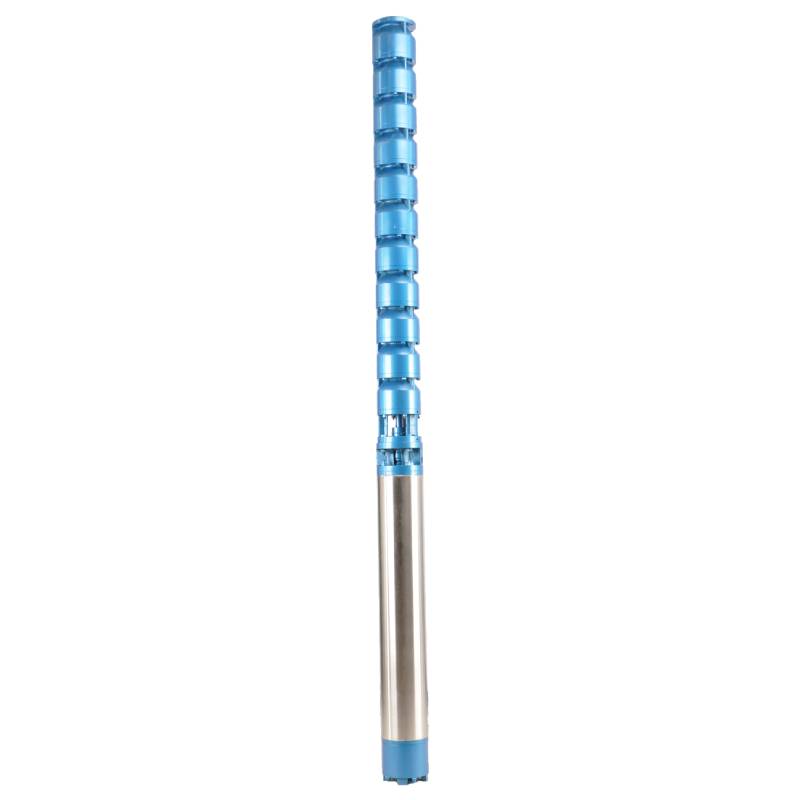Oct . 07, 2024 04:46 Back to list
submersible pressure pump
The Submersible Pressure Pump A Deep Dive into Its Functionality and Applications
Submersible pressure pumps are innovative devices designed to operate underwater, providing efficient solutions for various applications that require the movement of fluids. These pumps are primarily used for water extraction, specifically in wells, boreholes, and other submerged environments. Their unique design allows them to operate entirely beneath the surface of the liquid they are pumping, which offers several advantages over conventional surface pumps.
Design and Functionality
The core design of a submersible pressure pump includes a sealed motor and an impeller assembly that is submerged in the liquid. This design minimizes the risk of cavitation, a phenomenon where vapor bubbles form and collapse in a liquid, causing damage to the pump. The pump operates by converting electrical energy into mechanical energy, which is used to move water from a lower elevation to a higher one, combating gravity in the process.
Submersible pumps are typically made from corrosion-resistant materials, enabling them to withstand harsh conditions and the corrosive nature of some liquids. The motor of these pumps is hermetically sealed to prevent water ingress, which makes them resilient and reliable in various environments, including freshwater, seawater, and even wastewaters.
Applications
Submersible pressure pumps are used in a multitude of applications across various industries. Some of the most common uses include
1. Agricultural Irrigation Farmers utilize these pumps to draw water from deep wells or reservoirs to irrigate crops efficiently. The ability to pump water from significant depths ensures that crops receive the necessary hydration.
submersible pressure pump

2. Residential Water Supply In areas where groundwater is the primary source of water, submersible pumps are employed to supply fresh water for household use. These pumps can elevate water from deep aquifers to storage tanks or directly to taps in the home.
3. Sewage and Wastewater Management Submersible pumps are crucial in managing sewage systems by pumping waste from collection tanks to treatment facilities. Their ability to handle solids and wastewater without clogging makes them indispensable in municipal and industrial settings.
4. Industrial Applications Various industries use submersible pumps for processes that require the movement of fluids, including oil extraction, chemical processing, and mining operations where dewatering is necessary.
Advantages
The advantages of submersible pressure pumps are compelling. Firstly, their efficiency in moving large volumes of water from deep sources reduces energy consumption compared to surface pumps. Secondly, their submerged operation minimizes noise, making them suitable for residential areas. Additionally, the reduced risk of overheating, due to the cooling effect of the surrounding water, enhances their longevity.
Conclusion
In conclusion, submersible pressure pumps play a vital role in modern society, enabling water management in agricultural, residential, and industrial contexts. Their robust design and efficiency make them a preferred choice over traditional pumps, especially in applications requiring deep-water extraction. As technology continues to advance, we can expect even greater developments in the efficiency and functionality of these essential tools, further solidifying their importance in fluid dynamics. Whether it’s for irrigation, domestic water supply, or wastewater management, submersible pressure pumps are indispensable, ensuring that we can harness the natural resources effectively and sustainably.
-
Submersible Water Pump: The Efficient 'Power Pioneer' of the Underwater World
NewsJul.01,2025
-
Submersible Pond Pump: The Hidden Guardian of Water Landscape Ecology
NewsJul.01,2025
-
Stainless Well Pump: A Reliable and Durable Pumping Main Force
NewsJul.01,2025
-
Stainless Steel Submersible Pump: An Efficient and Versatile Tool for Underwater Operations
NewsJul.01,2025
-
Deep Well Submersible Pump: An Efficient 'Sucker' of Groundwater Sources
NewsJul.01,2025
-
Deep Water Well Pump: An Efficient 'Sucker' of Groundwater Sources
NewsJul.01,2025
-
 Submersible Water Pump: The Efficient 'Power Pioneer' of the Underwater WorldIn the field of hydraulic equipment, the Submersible Water Pump has become the core equipment for underwater operations and water resource transportation due to its unique design and excellent performance.Detail
Submersible Water Pump: The Efficient 'Power Pioneer' of the Underwater WorldIn the field of hydraulic equipment, the Submersible Water Pump has become the core equipment for underwater operations and water resource transportation due to its unique design and excellent performance.Detail -
 Submersible Pond Pump: The Hidden Guardian of Water Landscape EcologyIn courtyard landscapes, ecological ponds, and even small-scale water conservancy projects, there is a silent yet indispensable equipment - the Submersible Pond Pump.Detail
Submersible Pond Pump: The Hidden Guardian of Water Landscape EcologyIn courtyard landscapes, ecological ponds, and even small-scale water conservancy projects, there is a silent yet indispensable equipment - the Submersible Pond Pump.Detail -
 Stainless Well Pump: A Reliable and Durable Pumping Main ForceIn the field of water resource transportation, Stainless Well Pump has become the core equipment for various pumping scenarios with its excellent performance and reliable quality.Detail
Stainless Well Pump: A Reliable and Durable Pumping Main ForceIn the field of water resource transportation, Stainless Well Pump has become the core equipment for various pumping scenarios with its excellent performance and reliable quality.Detail
